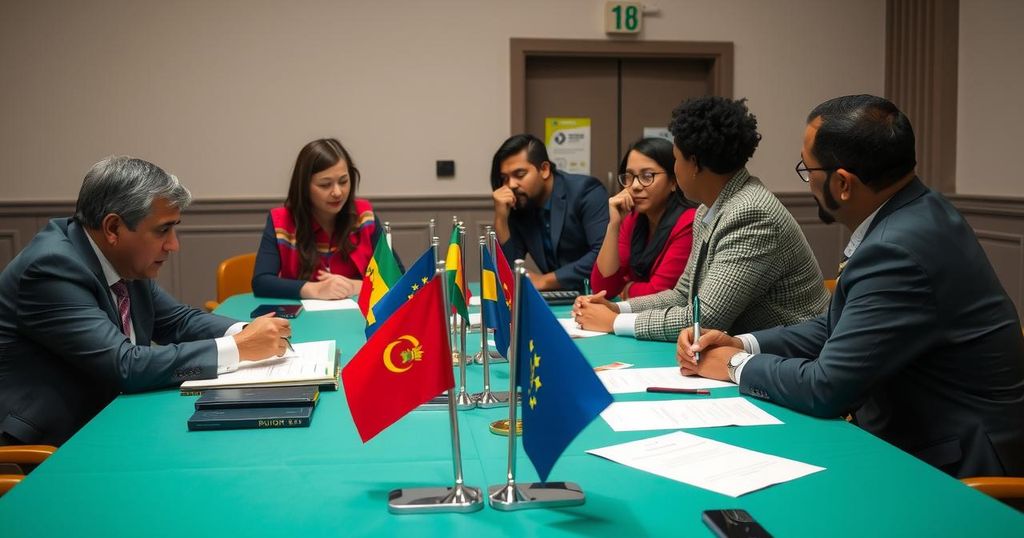Bolivia Faces Controversial Judicial Elections Amid Political Tensions

Bolivia is holding its divisive judicial elections, a unique system where voters elect judges. Campaigning is banned, yet candidates find ways to promote themselves. Many voters express apathy and uncertainty, with experts warning that the process politicizes the judiciary. Controversies, including a delayed vote by the Constitutional Court amid party power struggles, further undermine confidence in this electoral process. The elections have limited significance due to only a few seats being available, reflecting broader challenges facing Bolivian democracy.
Bolivia is set to conduct a controversial popular vote for its top judicial posts, a process that is unique in the world. Campaigning is officially banned, yet candidates have found creative ways to promote themselves, including through branding on snack foods. Bolivians are generally apathetic towards this system, with voters often expressing uncertainty over whom to choose due to a lack of information about the candidates. Critics argue that such elections undermine judicial neutrality, turning courts into political prizes rather than impartial adjudicators.
Historically, Bolivia shifted from a qualification-based appointment system for judges to a popular election system over a decade ago. This change has been criticized by experts, who believe it may consolidate political power and weaken institutional checks. In light of recent events, including a controversial decision by the Constitutional Court to delay the elections, the credibility of this electoral process has come into question, with accusations of extending judges’ mandates to maintain political influence.
Experts warn that the politicization of judiciaries across Latin America poses a significant threat to democracy. With only four of the nine seats on the Constitutional Court available for election this time, many believe that the outcome will have limited effects on the balance of judicial power in Bolivia, leading to low voter turnout, as observed in past elections. Furthermore, the decisions made by elected judges in previous years have had lasting impacts, such as the ruling that enabled ex-President Evo Morales to circumvent term limits, resulting in political upheaval. As both Bolivia and Mexico navigate judicial reforms, attention remains focused on how these electoral processes will shape democratic governance.
The article discusses Bolivia’s unique system of electing judges through a popular vote, which raises concerns about politicization and the integrity of the judiciary. This method was adopted over a decade ago in a bid to enhance democracy but has often resulted in the perception of judges as political pawns rather than impartial lawmakers. The upcoming election comes on the heels of recent controversies, including a delay imposed by the Constitutional Court amid political power struggles. This situation offers critical insights into the challenges facing judicial systems in Latin America, particularly in light of recent reforms in Mexico. Bolivia’s evolving relationship between its judiciary and politics is crucial, especially as former President Evo Morales attempted to manipulate judicial appointments in his favor, resulting in widespread unrest. The current electoral process reflects both continuity and change, as experts question the legitimacy and efficacy of such a system in maintaining democratic values. This context is vital to understanding the significance of the upcoming elections and their implications for Bolivian democracy.
In conclusion, Bolivia’s approach to electing judges through a popular vote, while initially intended to strengthen democracy, has largely resulted in widespread voter apathy and skepticism regarding judicial independence. The ongoing political tumult surrounding the elections highlights the fragility of Bolivia’s judicial system amidst power struggles. As both Bolivia and Mexico grapple with their respective judicial reforms, the outcomes of these elections will be pivotal in determining the trajectory of democracy and the integrity of the rule of law in the region.
Original Source: www.voanews.com






